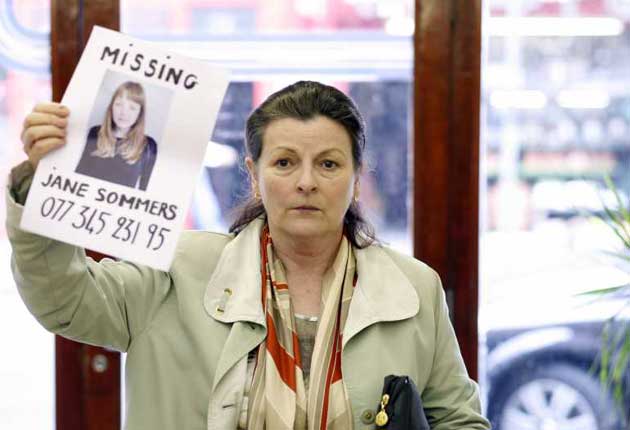London River: The film of the 7/7 bombing
It was the talk of Berlin, but this new film is nothing to celebrate, says Kaleem Aftab

Your support helps us to tell the story
From reproductive rights to climate change to Big Tech, The Independent is on the ground when the story is developing. Whether it's investigating the financials of Elon Musk's pro-Trump PAC or producing our latest documentary, 'The A Word', which shines a light on the American women fighting for reproductive rights, we know how important it is to parse out the facts from the messaging.
At such a critical moment in US history, we need reporters on the ground. Your donation allows us to keep sending journalists to speak to both sides of the story.
The Independent is trusted by Americans across the entire political spectrum. And unlike many other quality news outlets, we choose not to lock Americans out of our reporting and analysis with paywalls. We believe quality journalism should be available to everyone, paid for by those who can afford it.
Your support makes all the difference.The most talked about film at the Berlin Film Festival, London River, walked off with only one prize at the weekend — Sotigui Kouyate taking the award for best actor. It was a good decision, as it was only Kouyate's performance that lifted an otherwise dull and predictable film that avoided any meaningful discussion about the effect of the terrorist attack around which the story was shaped.
The 7 July 2005 London bombings are the backdrop to this clash of cultures story in which man is advised to love his neighbour even when they seem be your polar opposites. Sadly it's done in such a childish and didactic way that it's surprising that Rachid Bouchareb's film doesn't come with a sticker on the poster stating that it's suitable for six-year-olds.
The two principal protagonists, Elisabeth (Brenda Blethyn) and Ousmane (Sotigui Kouyate), are not exactly neighbours when the action commences. Elisabeth is a Falkland Island war widow residing in Guernsey who is first seen at church listening to a sermon about loving your neighbour. At the same time, Muslim Ousmane is seen praying in an African olive grove. Elisabeth's student daughter Jane has gone missing after the attacks and so has Ousmane's son, Ali.
Elisabeth's reactions seem to suggest that an ethnic minority has never set foot in Guernsey. She travels to London to search for her daughter. There, she is shocked by the multicultural vibe of the city and cannot believe that her daughter's landlord (Roschdy Zem) is somewhat swarthy. Her prejudices are so clearly painted that she has only one place to go and the inevitable journey towards racial tolerance and the incredulous line "Our lives aren't that different" is a slow and painful one – for the audience more than the character.
As soon as the characters meet one another, the London bombings fade into the background. The result is that they feel like a gimmick, no more than a plot device to attract the characters to each other and audiences to the film. This is an indelible stain that leaves the film morally bankrupt.
Ousmane arrives in London, speaking no English, to look for his son, who was sent to London aged six. His first port of call is a local imam (Sami Boajilla) and eventually he is given a photo of Ali that was taken in an Arabic language class. Sitting with his son is Jane, who Ousmane recognises from a missing-persons leaflet. It transpires that Jane and Ali are in a relationship. The coincidences and parallels between Elisabeth and Ousmane are continually overplayed.
Shot with hand-held cameras and on a tight budget, the film has a kitchen- sink feel to it, especially when the action focuses on Elisabeth. Normally such an aesthetic adds a documentary-style realism to proceedings, as it does with the cinema of the Dardenne brothers. Here it just accentuates the preposterousness of the storyline and the fact that its depiction of London is as poor as that recently attempted by Woody Allen.
It's a real step backwards for the Algerian director Rachid Bouchareb, whose past film Days of Glory was a fascinating insight into the treatment of the North African soldiers who fought valiantly to liberate France during the Second World War. In that film, the characters were well-rounded and three-dimensional. In sharp contrast the characters in London River are universally well-meaning. It's only during the final sequences that the film manages to find any pathos and drama.
Despite the portentous storyline, this was just another in the glut of well-intentioned movies at the Berlin Film Festival that aimed to show how the lives of people from all walks of life are connected. The competition was full of such films – part of the reason why the festival was so poor this year. It's no surprise that the Golden Bear went to Milk of Sorrow, a Peruvian film about atrocities against women in Peru. It was one of the few films that didn't pander to an international audience.
'London River' is due out later this year
Join our commenting forum
Join thought-provoking conversations, follow other Independent readers and see their replies
Comments